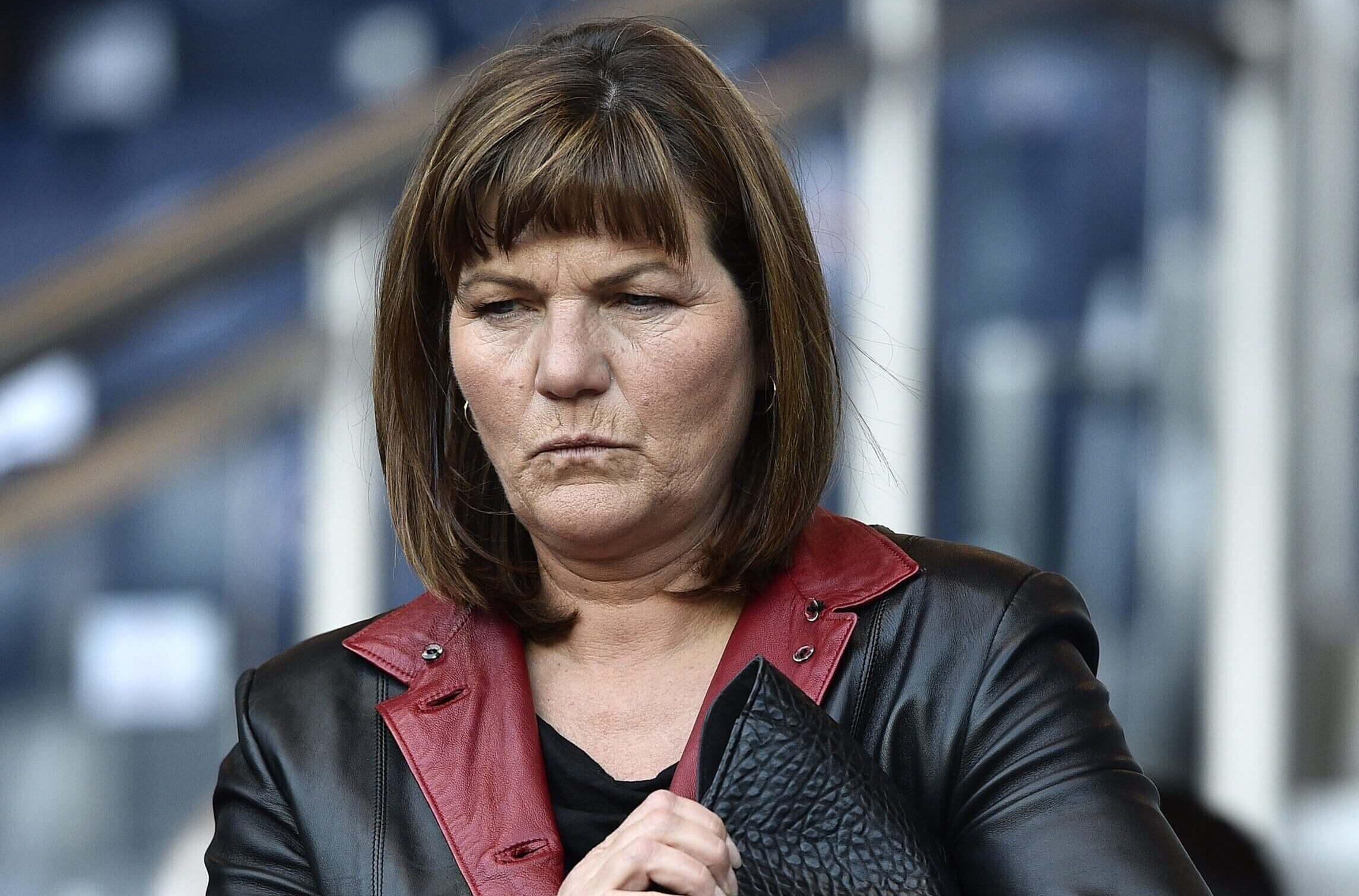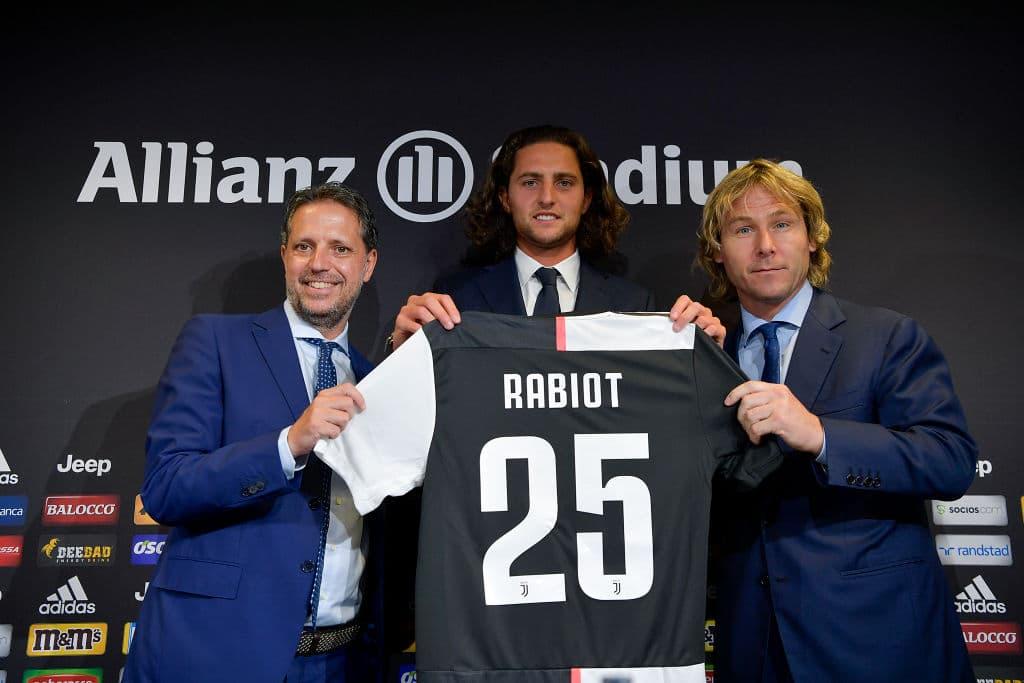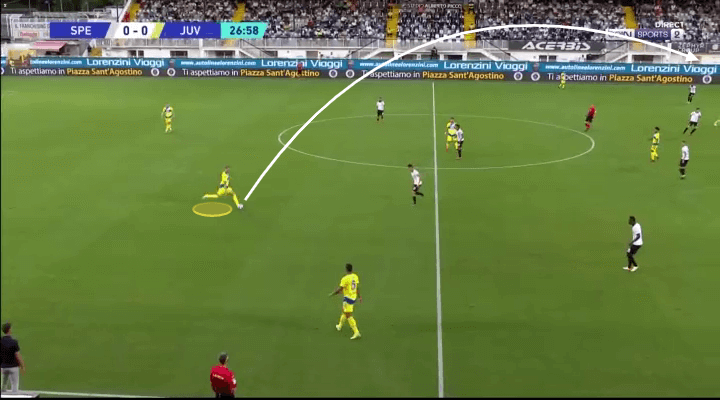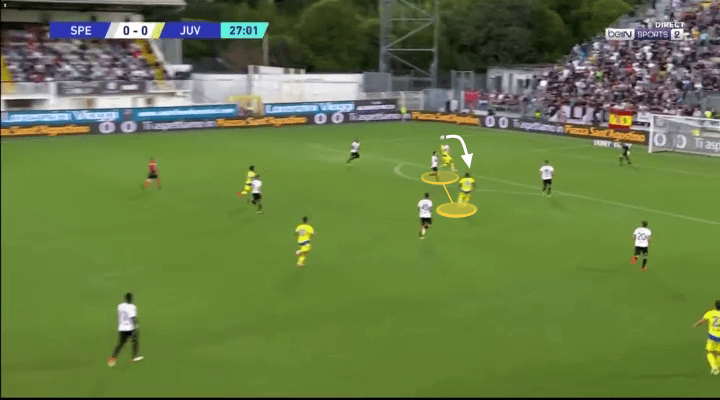The Adrien Rabiot paradox: What exactly would Manchester United be getting?
28
Veronique Rabiot believed her son, Adrien, would have made a fine fencer.
It’s a discipline the French have a strong tradition in, going back to the 1896 Athens Olympics, and it’s not too much of a stretch of the imagination to see a tall white-jacketed figure advancing up the piste, a balestra here, a fleche there, ready to pull off his mask at the end of a bout to reveal Adrien and those long, wavy locks.
Unfortunately for sabre-rattlers, he chose football instead.
“Very early on he told me, ‘I want to be a footballer and play for the national team’,” Veronique recalled to Ouest France earlier this year.
The epee could remain sheathed. Her boy visualised and actualised. Rabiot first appeared in Ligue 1 a decade ago this month. He was still a teenager when he helped Paris Saint-Germain win the 2013-14 championship, gaining the trust of Carlo Ancelotti, and made his senior debut for France shortly after turning 21. His pedigree is indisputable and perhaps it’s just as well Veronique did not push him into fencing.
Why, then, might Manchester United be hearing calls of ‘en garde’ as they now work on a deal with Juventus to sign Rabiot?
The season has no sooner started and already the club seems to be missing a France international midfielder they can all disagree over.
Paul Pogba divided opinion in his six-year second spell at Old Trafford and if there is a silver lining to draw from that experience, it’s that it represents perfect preparation for l’enigma Rabiot, should he join; for there are few players quite as polarising and confounding.
In the face of regular criticism, Veronique has tried to humanise her son and remind exasperated supporters that he isn’t an insentient Panini sticker, but a real person with feelings too.
“I wish the general public knew what it’s like along the way for footballers to reach the top level,” she said. “All that gets talked about is how they are overpaid et cetera. But people don’t realise how many sacrifices they have to make, the mental toughness involved.”
Never has Rabiot had to be stronger than when his father, Michel Provost, suffered a stroke in 2007 that left him with locked-in syndrome. “Ever since his accident, I’ve been fighting for him on the pitch,” he told Le Parisien.
Rabiot was only a boy at the time, barely 12.
Manchester City recruited him to their academy, but he returned to France after six months in part to be near his dad. “It’s complicated,” Rabiot said, “because he’s in a hospital in Auxerre and I’m (two hours away) in Paris.”
The condition of Rabiot’s father is considered one of the reasons why Veronique took an even more hands-on role in her son’s career.
“She has followed me all over, since I was little, to England and the south of France (where Adrien played for Pau and Toulouse). She has an important place,” he said. “Agents are not really her thing and for the moment, she doesn’t think it’s necessary. Every time someone calls, she gives them the same answer. She was the one in front of (sporting director) Leonardo to negotiate my pro contract (at PSG).”

Veronique Rabiot has taken a hands-on role in her son’s career (Photo: Getty)
As was the case with Pogba, perceptions of Rabiot have tended to come through the prism of how he has been represented, and Veronique’s reputation precedes her. Then-Toulouse coach Alain Casanova told RMC he never had a problem with Adrien during his time on loan from PSG in 2013. He did, however, claim he had to push back on Veronique wanting to attend all her son’s training sessions. “I didn’t want him to feel uncomfortable with his team-mates, seeing that his mother was on the sidelines.”
Veteran sporting directors have described negotiating with her as like a “scene from a film”.
Walter Sabatini wanted to sign Rabiot for Roma in 2014 and probably felt he’d done the hard part after reaching an agreement with PSG. “We had a lunchtime appointment,” he has recalled. Sabatini and Veronique had agreed to meet in a parking lot. “The other son was there, waiting for us. He looked straight out of the Foreign Legion. Anyway, he was sitting on a chair in this car park. No one was around.
“We got talking and I said we already had a deal with the club (PSG). She was about to get up but added something no one translated for me. Still, I understood what she meant. I checked and I was right. I flew into a rage. She wanted to talk to (Roma’s coach at the time Rudi) Garcia. I was furious and left.
“Things like that can never be allowed to happen because if you give a mother a one-on-one with the coach, the next thing you know she’ll be in the dressing room.”
Rabiot stayed another five years at the Parc des Princes, winning the league and the two French cup competitions over and over again. But the last six months of his time at the club were spent on the margins after talks to extend his contract broke down in December 2018.
He was then seen out at a nightclub after PSG’s last-gasp exit against Manchester United in the Champions League last-16 the following March and made the mistake of liking an Instagram post by Patrice Evra, in which the former France full-back threatened to slap TV pundit Jerome Rothen after Rothen, himself a former PSG player, took issue with how exuberantly United old boy Evra celebrated Marcus Rashford’s winning added-time penalty at the Parc.
Disciplined internally by PSG, the French players’ union would later deem the punishment of withholding a week’s wages and a bonus payment excessive, ruling in favour of Rabiot. He had already left for Juventus by that stage, but there was no going back. There had been banners at the Parc that needed no translation, like “Rabiot black list”.
A fresh start was exactly what Rabiot needed a year after he made what Didier Deschamps called “an enormous error” by refusing to go on the 11-man standby list for the 2018 World Cup finals France went on to win.
Turin offered a home away from home.
The French Alps are visible from its tree-lined boulevards and the local dialect is infused with vocabulary from across the border in Rabiot’s homeland. French players have generally thrived in Juventus colours, from Deschamps himself to Zinedine Zidane, Lilian Thuram and of course Michel Platini. Why not Rabiot?
It was hoped he would continue Juventus’ tremendous success in the free agency market too. Eight consecutive league titles had been built on Bosmans signings including Andrea Pirlo and fellow World Cup winners Fernando Llorente and Sami Khedira, there was the potential of Pogba and then the profits from selling him back to United, not to mention the windfall received for another Parisien when Kingsley Coman went to Bayern.
A ringing endorsement arrived from Gigi Buffon no less, who returned to Juventus at the same time after spending a year at PSG — “Gigi in Paris” — with Rabiot. “He’s a fantastic mix,” the veteran goalkeeper said. “He’s got Pogba’s strength” and is built like a “proper wardrobe”. Buffon went even further, claiming to see “the personality of Arturo Vidal and potentially the dynamism and late runs of Claudio Marchisio”.
In short, the characteristics of arguably the best Juventus midfield this century all rolled into one, a midfield that a generation of Juventus fans judge their teams since on, one that was succeeded with distinction by Miralem Pjanic and Khedira. But the spell broke with Rabiot, Aaron Ramsey and, to a much lesser extent, Emre Can.

Rabiot joined Juventus in the summer of 2019 (Photo: Getty)
Juventus retained their title for another year but let’s face it, that was considered the bare minimum after the signing of Cristiano Ronaldo. At a time when expectations were higher than ever, the team was found wanting in the middle of the park, more so than ever after Pjanic’s move to Barcelona.
They got relatively little bang for their buck from Rabiot and Ramsey — although the Welshman at least scored in what was effectively a title decider against Inter Milan in March 2020. The salaries those two negotiated as free agents also put them in the highest pay bracket at the club after Ronaldo and Matthijs de Ligt, which made them lightning rods for criticism and symbols of the decline of Juventus’ midfield and the decline of the Old Lady as a whole.
Rabiot’s return from lockdown that early summer later than some of his team-mates for a non-obligatory training camp wasn’t endearing either, with La Stampa reporting he had gone on strike against voluntary wage deferrals to help the club get through the beginning of the pandemic.
Later the same day, Rabiot offered a sarcastic rebuttal on Instagram, posting one story of him looking pensive and the caption “when you realise it’s your last day of… strike”, then another of a bottle of what appears to be poison with the label: “Newspaper-TV press. Do not swallow.”
The incident led to speculation about his future and whether he’d be one and done in Turin, on his way again after a single season. But Rabiot stayed and his team-mates and coaching staff recall how the following Christmas they were touched to each receive a sensational bottle of burgundy each from him as a gift.
Le Duc, as he is known — that’s The Duke for those of you who skipped French at school — is a deceptive player to analyse.
Rabiot is tall, elegant-looking and left-footed. But he isn’t especially technical. He rarely scores, assists or even creates chances. The play does not go through him.
Why then, Juventus supporters ask, is he on €7million-a-year net, the same wage packet, more or less, as Dusan Vlahovic? A better question is how come Maurizio Sarri, Pirlo and Max Allegri have almost always played him when they have been the club’s coach?
One Serie A player The Athletic spoke to couldn’t believe the scepticism around Rabiot: “He’s amazing. One of the best I’ve played against. Granted, Juve don’t suit his style but as a player, he’s top level. He was always that millisecond quicker to the ball than you. Just the way he moved and cared for the ball left an impression on me.”
Sabatini still rates him too, and this is the man who brought the likes of Alisson, Marquinhos, Erik Lamela and Javier Pastore to Europe, while also signing Mohamed Salah for Roma. “I respect everyone’s opinion,” he said, “but it is rash to say that he is poor or mediocre. For me he is a very good player, with one flaw: when he plays badly, he is noticeable, many others go unnoticed.”
Rabiot also tends to play well when his team lose, as was the case in the second leg of Juventus’ last 16 Champions League tie against Villarreal back in March and when he scored that wondergoal against AC Milan in July 2020, carrying the ball from inside his own half before letting rip and finding the top corner.
It matters that Rabiot has averaged 40 games a season in three seasons at the Allianz Stadium. He can, unlike Pogba, be relied upon to be fit and healthy enough to play regularly.
It’s his physicality and athleticism that stand out. In terms of pressure regains, StatsBomb data shows he made 5.02 per 90 minutes in Serie A last season, which was comfortably the most of any Juventus player.
Imagine, if you will, the actor Timothee Chalemet possessed by the spirit of Scott McTominay.
Allegri would often use the Parisien as a route-one outlet, going long to the 188cm (6ft 2in) Rabiot, exploiting his height and springiness to win knockdowns, like the one that led to Moise Kean’s opening goal away to Spezia last September.
Leonardo Bonucci takes route one to the opposition penalty area…

…with Rabiot nodding it back for Kean to chest down and finish.

While it may not be Ten Hag-ball, it isn’t too dissimilar to how coach Simone Inzaghi made the most of Sergej Milinkovic-Savic at Lazio. It’s just that the Serb, a former Serie A midfielder of the year, chips in with far more goals and assists — 49 in the league over the past three seasons, compared with Rabiot’s 10.
Schemes like this, and his role in Allegri’s pragmatic style, do him little in the way of favours too, regardless of whether they end in a goal or not. Rabiot enables Juventus to play in a way fans don’t like — a team who don’t entertain.
Paolo Di Canio, now a Sky Italia pundit, has compared Rabiot with a footballing “giraffe”.
And so, the Rabiot paradox, as defined by writer Emiliano Atturo continues. What you have is “a starter for Juventus, always called up for France, who is not considered good enough for one or the other.”
“The Duke won’t abdicate” was L’Equipe’s headline in June after a 1-1 draw with Croatia, a rematch of the 2018 World Cup final, in the Nations League.
Deschamps welcomed him back into the fold in 2020 and Rabiot remains in the squad despite the verbal exchange between Veronique and team-mate Kylian Mbappe’s father which almost eclipsed the striker’s penalty shootout miss against Switzerland and the early elimination from last summer’s European Championship it precipitated.
Rabiot scored France’s goal in that game against Croatia and, for now at least, holds off competition from this summer’s most expensive transfer, Real Madrid’s potential €100 million new boy Aurelien Tchouameni, for a place in the starting XI.
Pogba’s recent meniscus tear also gives Rabiot a good chance of featuring at the World Cup in November and December as long as he starts the club season well, while his hybrid role — wide on the left in a 4-4-2 to cover for Mbappe, as he used to for Ronaldo with Juventus — matches well with his day-job, where he succeeded Blaise Matuidi.
Last year at Juventus, Rabiot was top for sprinting distance at the club, covering the second-most ground per 90. Only Juan Cuadrado was able to hit his peak speed and keep hitting it as regularly as Rabiot did.
Perfect for the Premier League, then.
But what about Ten Hag’s brand of football? Other than the occasional carry, Rabiot could not be more different from Frenkie de Jong if — that is — one is signed as an alternative to the other.
What does it tell us about Ronaldo’s future too, if a player of Rabiot’s physical output, is to be reunited with his former Juventus team-mate, presumably to do some running for him?
And how serious are United about quietening all the noise coming out of the club by pursuing Rabiot and Marko Arnautovic who, for different reasons, have made headlines off the pitch?
As much as Rabiot may be considered an enigma, there is arguably no greater source of perplexity in football right now than how United continue to be run.
